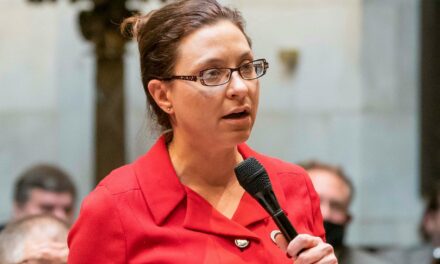
Republicans propose family and medical leave changes

Republican lawmakers have introduced a bill they say would reform family and medical leave, but advocates oppose the measure and called on legislators to expand access to such programs.
The bill, co-authored by Sen. Alberta Darling, R-River Hills, as well as Reps. Joan Ballweg, R-Markesan, and Mike Rohrkaste, R-Neenah, is similar to a proposal floated in 2015. It says employers who are covered under the federal Family and Medical Leave Act would be exempt from state law.
Under current state law, workers get six weeks of unpaid leave per year for the birth or adoption of a child and two weeks to care for family members with health conditions. They also get two weeks of unpaid leave for serious health conditions.
Under federal law, workers receive 12 weeks of unpaid, job-protected leave in those situations.
While federal law covers workers who spent at least 1,250 hours in the last year on the job, state law covers workers who spent 1,000 hours. And although both federal and state laws cover businesses with at least 50 employees, federal law requires workers be located within 75 miles of a worksite.
The lawmakers hope to clear up confusion between the overlapping provisions and reduce paperwork for human resource departments.
The bill would keep the two weeks of medical leave under state law. It would also allow workers family leave to care for sick domestic partners and parents-in-law, which are covered under state law but not federal law.
“This is a common sense reform to streamline and simplify family and medical leave laws for employers, while still protecting this critical benefit for Wisconsin’s employees,” Darling said in a statement.
Wisconsin Manufacturers and Commerce has supported the reform in past years and has joined a coalition of employer groups to push for the bill.
According to Chris Reader, director of health and human resources policy, the bill’s passage would mean “absolutely no difference” for the “vast majority of workers.” He said it would simply streamline the current “time-consuming and expensive” process.
Advocacy groups who have spoken out against the reform in the past are voicing their concerns once again with the circulation of the bill.
Mike Murray, public policy director of the Wisconsin Alliance for Women’s Health, said the organization opposes any attempt to reduce coverage of the state law.
He said the state “should be focusing on expanding access to family and medical leave for Wisconsin workers,” and asked lawmakers to consider granting employees paid leave.
9to5 Wisconsin State Director Astar Herndon also believes leave for employees should be expanded and paid, citing concerns about protecting part-time workers and women in the workforce.
“The real fix is making it an insurance program and taking it out of the role of the HR department, and putting it with the state so it can manage and disburse funds for workers,” Herndon said.





